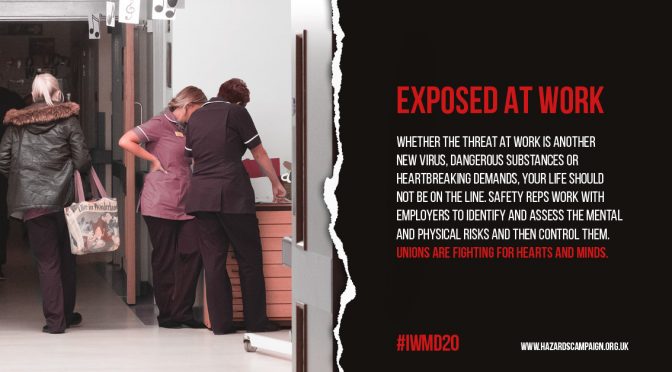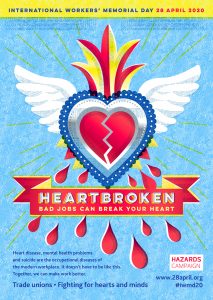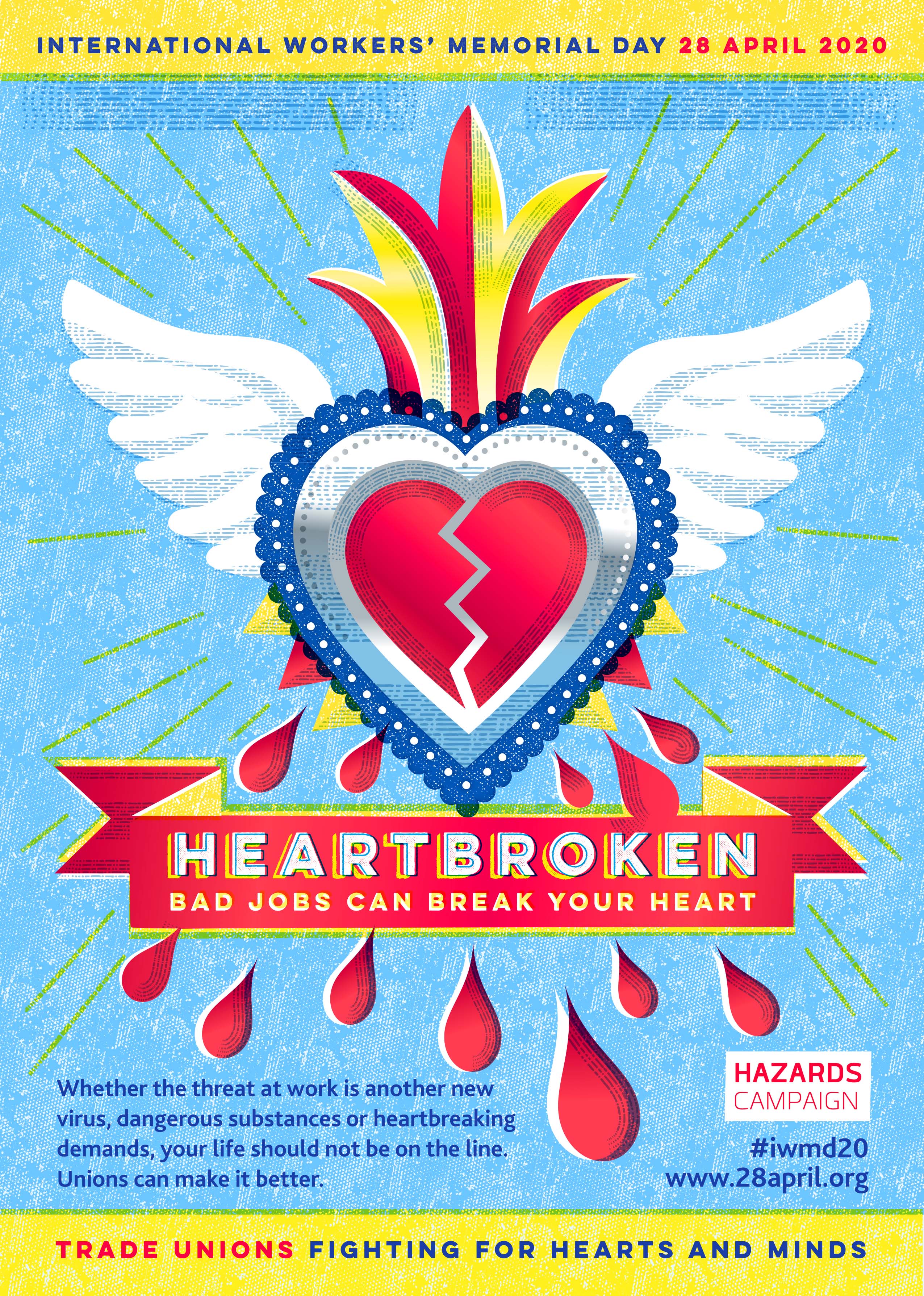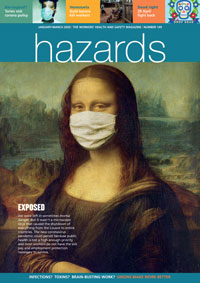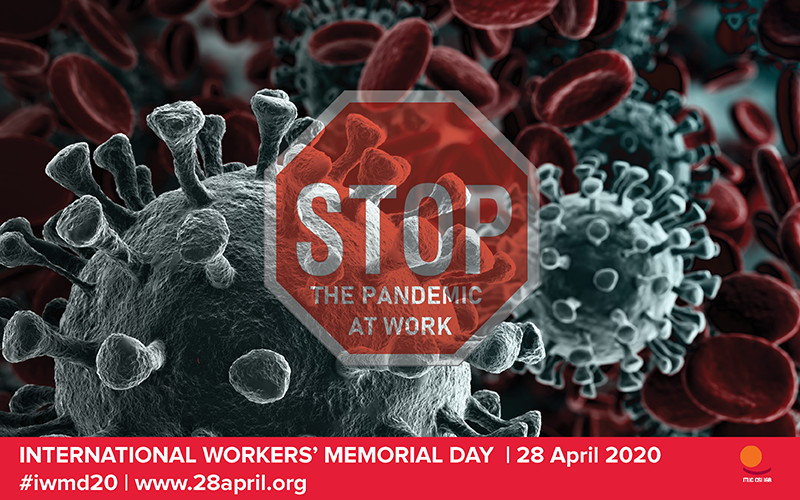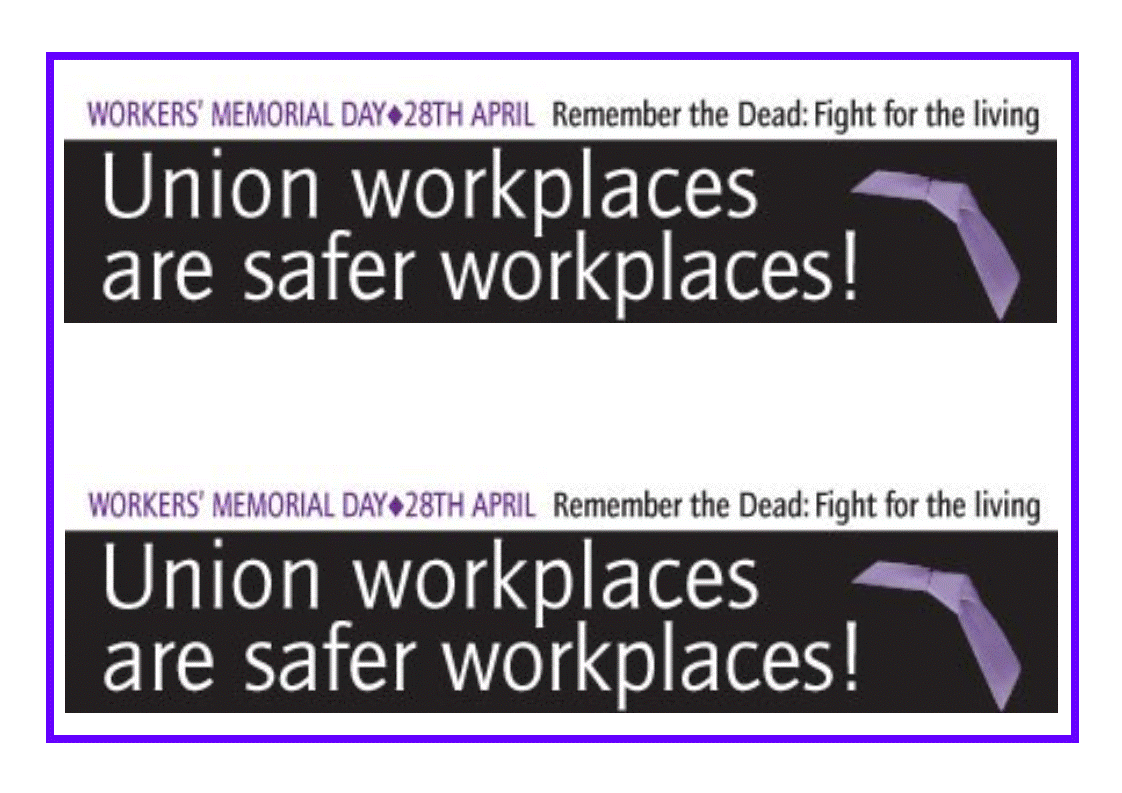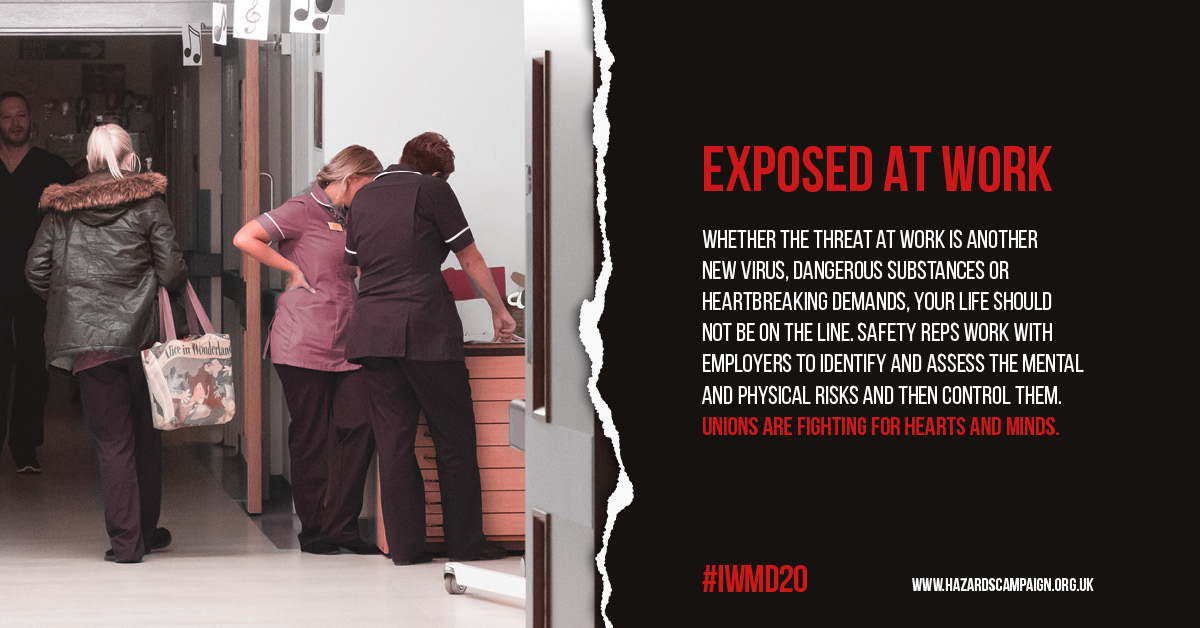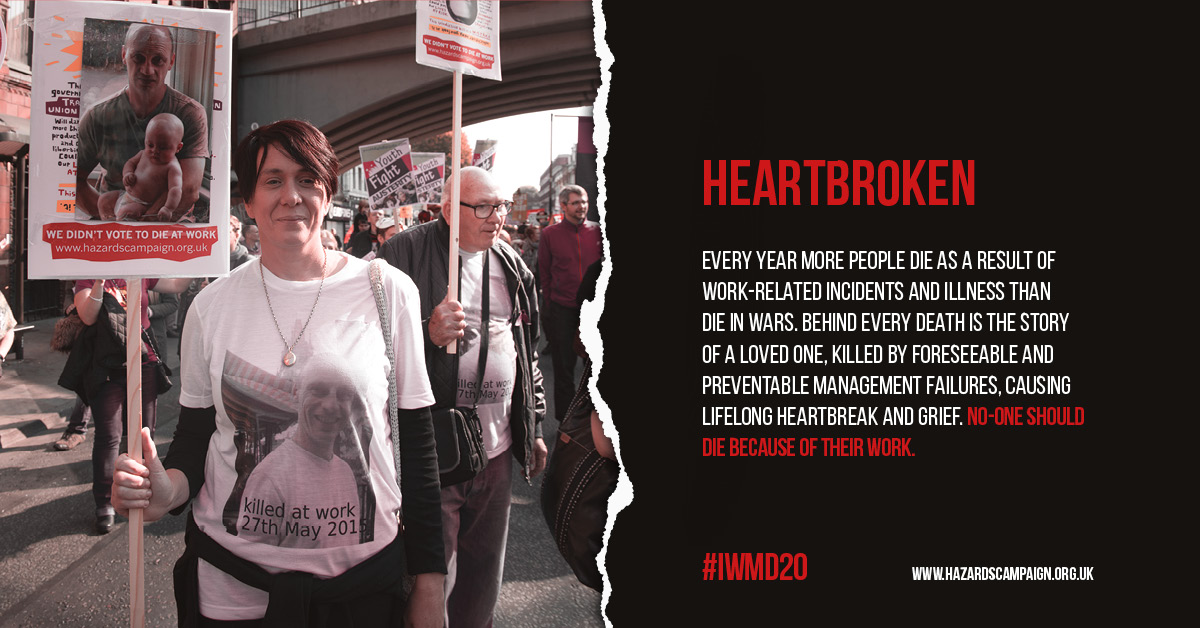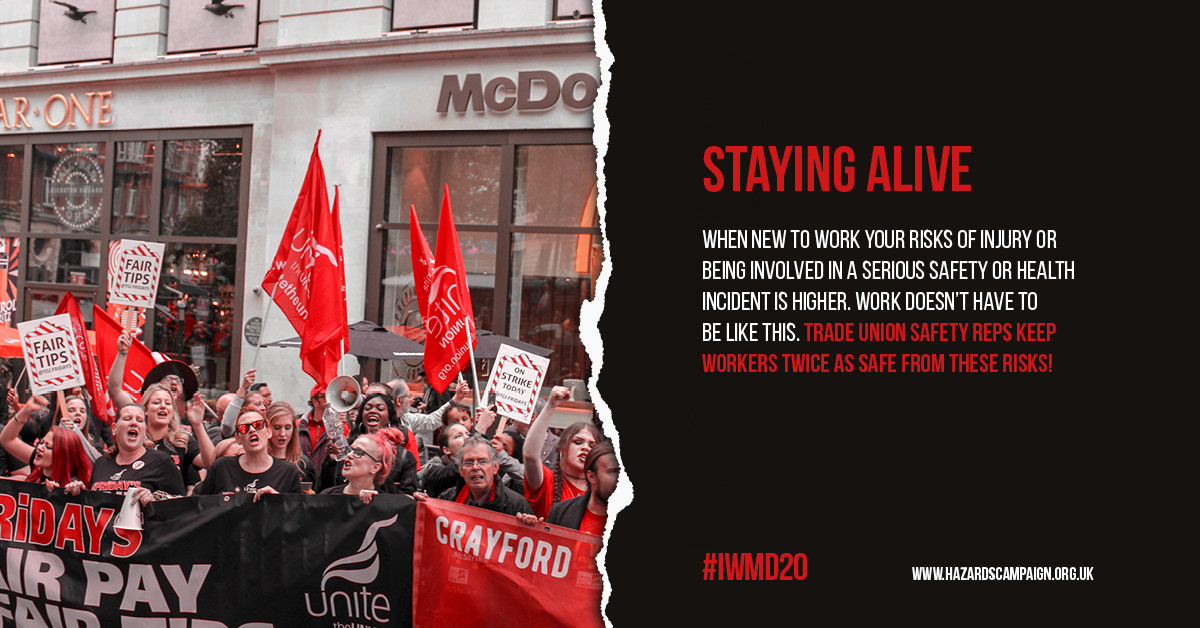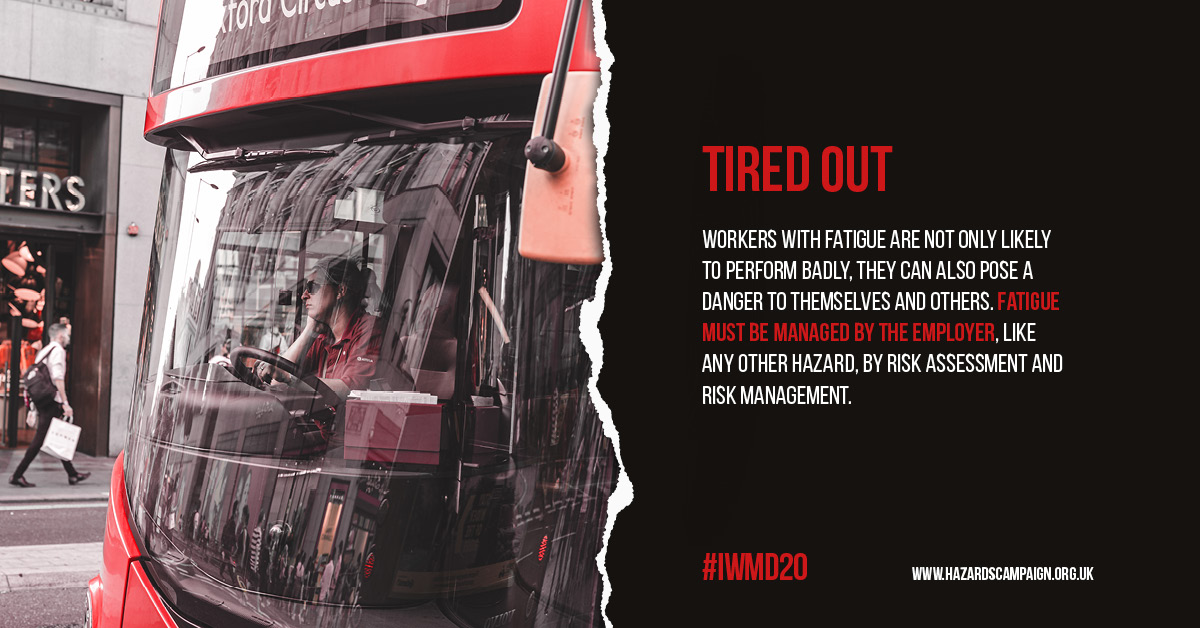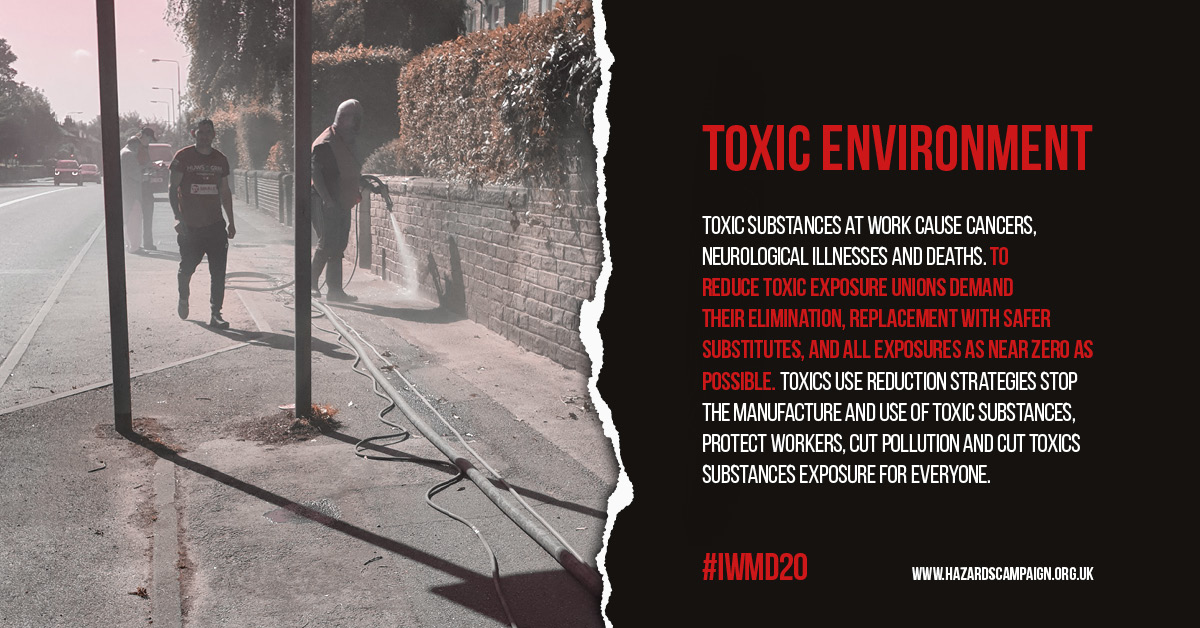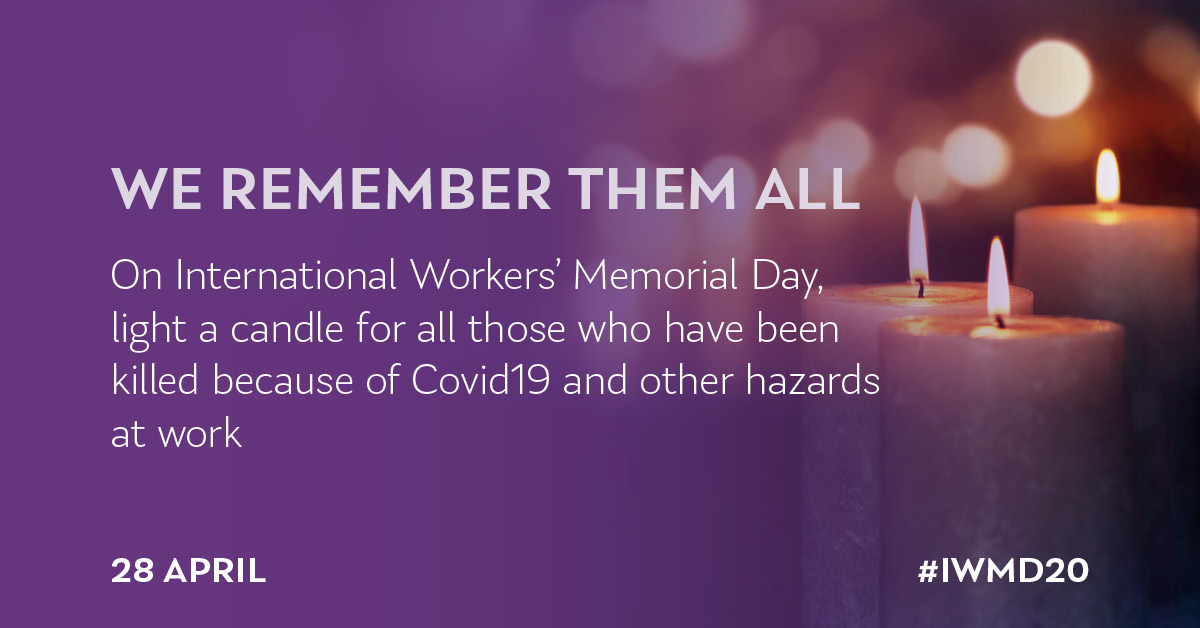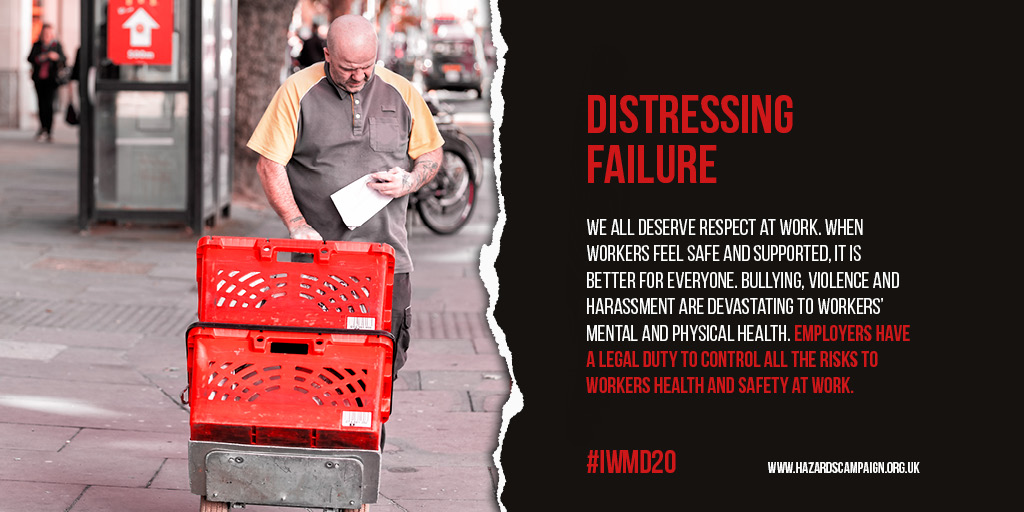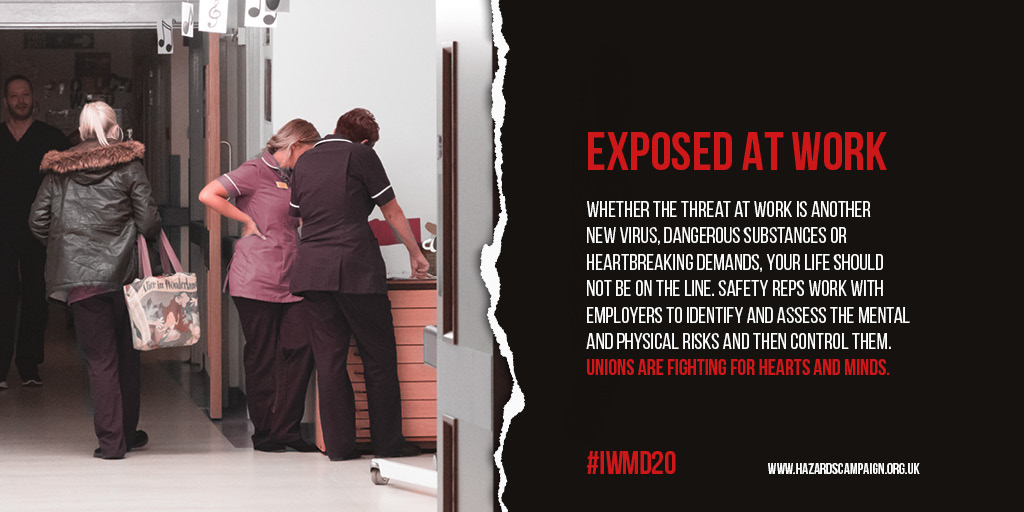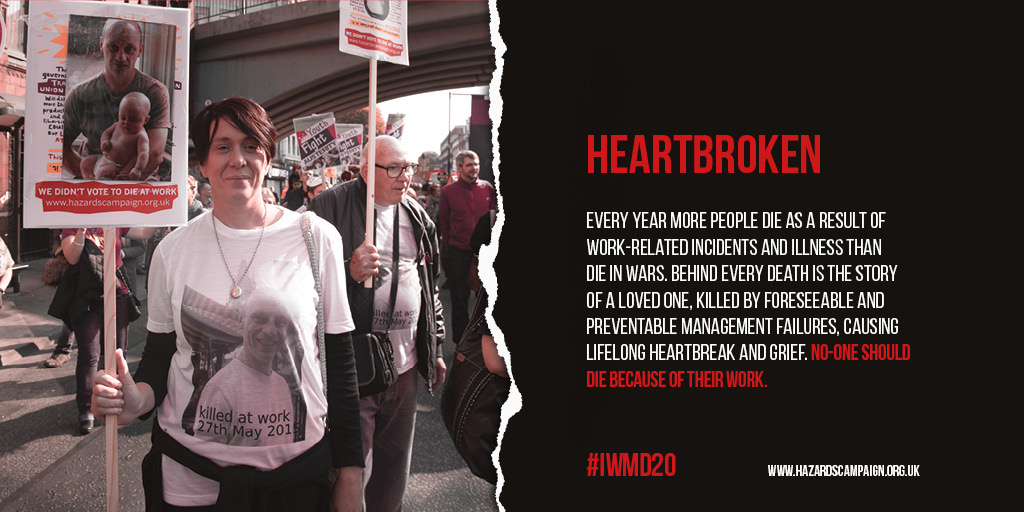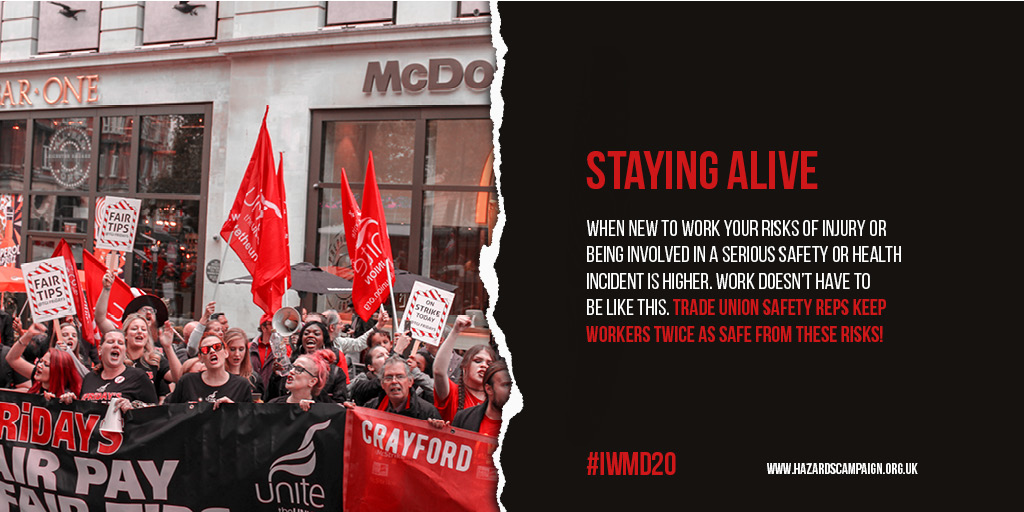Letter to the HSE
Martin Temple Chair of HSE Board and Sarah Albon CEO
Health and Safety Executive
Redgrave Court
Merton Road
Bootle
Merseyside
L20 7HS
30 March 2020
Dear Martin Temple, Sarah Albon,
We are weeks into the COVID19 pandemic and reports continue to arrive in our inbox of workers being exposed to unnecessary risks. This includes being left without any protection or controls of exposure to this dangerous virus. The messages from the Government have been confused at best and ignorant of the reality of working practices to the point of negligence to individual workers:
- Stay at home
• Only go outside for food, health reasons or work (but only if you cannot work from home)
• If you go out, stay 2 metres (6ft) away from other people at all times
• Wash your hands as soon as you get home
• Do not meet others, even friends or family.
• You can spread the virus even if you don’t have symptoms.
https://www.gov.uk/coronavirus
- When am I allowed to leave the house?
o You should only leave the house for very limited purposes:
o shopping for basic necessities, for example food and medicine, which must be as infrequent as possible
o one form of exercise a day, for example a run, walk, or cycle – alone or with members of your household
o any medical need, including to donate blood, avoid or escape risk of injury or harm, or to provide care or to help a vulnerable person
o travelling for work purposes, but only where you cannot work from home• Should I stay at home or go to work?
o You may travel for work purposes, but only where you cannot work from home.
o Certain jobs require people to travel to their place of work – for instance if they operate machinery, work in construction or manufacturing, or are delivering front line services such as train and bus drivers.
o Employers and employees should discuss their working arrangements, and employers should take every possible step to facilitate their employees working from home, including providing suitable IT and equipment to enable remote working.• I’m not a critical worker and I can’t work from home. What should I do?
o If you cannot work from home then you can still travel to work. This is consistent with the Chief Medical Officer’s advice.
o Critical workers are those who can still take their children to school or childcare. This critical worker definition does not affect whether or not you can travel to work – if you are not a critical worker, you may still travel to work provided you cannot work from home.
o Anyone who has symptoms or is in a household where someone has symptoms should not go to work and should self-isolate.
• How can I find out if my work is essential or not?
o The government is not saying only people doing “essential” work can go to work. Anyone who cannot work from home can still go to work.
o Separately, there is a list of critical workers who can still take their children to school or childcare. Provision has been prioritised for these workers.
o Every worker – whether critical or not – should work from home if they can but may otherwise travel to work.
o We have also asked certain businesses where people gather, such as pubs and most shops, to close. Separate guidance has been published on this.
• Can I see my friends?
o We must all stay away from each other to stop spreading the virus, and that means you should not be meeting friends unless you live in the same household.
o Instead, you could keep in touch with your friends using phone or video calls.
• My boss is forcing me to go to work but I’m scared of coronavirus. What should I do?
o Employers must make all efforts to help people to work from home where possible, as this will help limit the spread of the virus by reducing the amount of contact between people.
o In some circumstances this may be impossible – this would apply to those working for a business or organisation that we have not asked to close and requires them to travel and be at work, such as train or bus drivers, construction workers, restaurant workers handling deliveries or those on the frontline like NHS workers.
o For these workers who need to be at work, do not have symptoms or live with anyone who has symptoms, and are not vulnerable people, we have outlined clear guidance for employers to help protect workers.
• I can’t go to work because I need to look after my child, but my boss is threatening to sack me if I don’t. What should I do?
o We would urge employers to take socially responsible decisions and listen to the concerns of their workforce – particularly when they have childcare responsibilities.
o Employers and employees should come to an agreement about these arrangements.
o If individuals need advice they should approach ACAS where they can get impartial advice about in-work disputes.
• What will happen to me if I break the rules?
o We appreciate all the effort people are putting into containing the spread of coronavirus which will help protect our NHS and save lives.
o However, if you leave your home or gather in public for any reason other than those specified, the police may:
o instruct you to go home, leave an area or disperse
o instruct you to take steps to stop your children breaking these rules if they have already done so
o take you home – or arrest you – if you do not follow their instructions or where they deem it necessary
o issue a fine (fixed penalty notice) of £60, which will be lowered to £30 if paid within 14 days.
o issue a fine (fixed penalty notice) of £120 for second time offenders, doubling on each further repeat offence
o Individuals who do not pay their fine could be taken to court, with magistrates able to impose unlimited fines.
https://www.gov.uk/government/publications/coronavirus-outbreak-faqs-what-you-can-and-cant-do/coronavirus-outbreak-faqs-what-you-can-and-cant-do
- Employers who have people in their offices or onsite should ensure that employees are able to follow Public Health England guidelines including, where possible, maintaining a 2 metre distance from others, and washing their hands with soap and water often, for at least 20 seconds (or using hand sanitiser gel if soap and water is not available).
https://www.gov.uk/government/publications/further-businesses-and-premises-to-close/further-businesses-and-premises-to-close-guidance
But it is impossible to keep safe distance apart in some workplaces and on some jobs. An example of this are the thousands of construction workers on non-essential projects who are still working. Reducing the spread of Covid -19 is not just about social/physical distancing but about touch. Most work which cannot be done at home – 2/3 of workers are unable to work at home – in manufacturing, construction and warehousing for example, involves a lot of touching and handling of materials. In many there will be touch pad security systems, touched by all workers and uncleaned between. In most workplaces complying with the hand washing, cleaning surfaces and materials guidance will be completely impossible and thus breaches the general duty in S2 of Health and Safety at Work Act.
In our opinion those workplaces which are non-essential at this time and cannot guarantee the safety and health of their workers or the public they travel amongst on their way to and from work, or the families they go home to , and should be suspending operations, if the spread of the virus is to be slowed down. This is the only social distancing that will work. The law now potentially allows workers travelling to non-essential work to be stopped and fined, but does not seem to allow unsafe non-essential workplaces to be closed.
The Government has laid out which agencies who will monitor and enforce the new regulations which support their Health Protection (Coronavirus, Restrictions) Regulations 2020 and further advice has been issued:
5. Compliance
Everyone is instructed to comply with the rules issued by the government in relation to coronavirus, in order to protect both themselves and others.
As of 1pm on 26 March 2020 new Regulations extending the restrictions are now enforceable by law in England due to the threat to public health. These supersede Regulations that came into force at 2pm on 21 March 2020. They are enforceable in Wales from 4pm on 26 March 2020 and Scotland from 7.15pm on 26 March 2020.
Where an owner, proprietor or manager carrying out a business (or a person responsible for other premises) contravenes the Regulations, that person commits an offence.
In England, Environmental Health and Trading Standards officers will monitor compliance with these regulations, with police support provided if appropriate. Businesses and venues that breach them will be subject to prohibition notices, and fixed penalties. With the support of the police, prohibition notices can be used to require compliance with the Regulations including requiring that an activity ceases.
If prohibition notices are not followed, or fixed penalty notice not paid, you may also be taken to court with magistrates able to impose potentially unlimited fines.
https://www.gov.uk/government/publications/further-businesses-and-premises-to-close/further-businesses-and-premises-to-close-guidance
Although this says Environmental Health, Trading Standards and Police will monitor compliance with these regulations this only applies to those workplaces specifically closed down by government regulations. It does not apply to construction, manufacturing and other non-essential work not listed. But this does not negate the responsibility of the HSE and LA Health and Safety Inspectors to continue to regulate and enforce Health and Safety Regulations in all workplaces both essential and non-essential workplaces. And in this case it will be around PPE – provision, appropriateness and quantity -, managing risks and introducing safe systems of work and control measures.
If the HSE and LA health and safety officers do not act, employers will continue to take advantage and place their workers at risk. Trade Unions are continuing to highlight many examples of bad employment practices and negligent employers and through collective action have forced employers to improve their practices, but we still need the enforcement bodies to act as well.
Workers are justifiably feeling abandoned, anxious and their physical and mental health is deteriorating leaving them more likely to be at risk from contracting the virus.
Please will you tell us what action the HSE is taking to protect workers in this unprecedented situation, so that we can pass this on to the thousands of workers currently feeling abandoned and unnecessarily exposed to life threatening risks. We specifically want to know what action the HSE is taking to:
1. Remind all employers in essential and non-essential workplaces that workers health and safety is paramount at all times, that normal health and safety duties and regulations apply and that #Covid19 means extra risks must be assessed and prevented in usual way – by elimination, collective control and appropriate and sufficient PPE as last resort.
2. Issue strong warnings to employers to review all Risk Assessments for the new Covid 19 risk and to introduce safe systems of work to protect workers.
3. Advise employers that if suitable and sufficient Risk Assessments show the risk of exposure to COVID19 cannot be reasonable prevented they must stop work.
4. Provide workers with information about risks to their health and what their employers should be doing. Closure of HSE Infoline in2011 has left workers without a lifeline and employers without advice. Surely at this time with inspectors working from home, the HSE helpline could be reintroduced to support these workers?
5. Respond to the ‘Report a Concern’ online form by next day with enforcement action to support workers health against employers who are breaching health and safety regulations. Will you accept photographic evidence available which is date stamped? This could be used to instruct employers to either improve the situation in workplaces or face Prohibition and Improvement Notices.
6. Enforce strongly the need for appropriate PPE in sufficient quantities to protect the health of all NHS, Care and other health and essential workers who are at greatest risk of exposure to Covid19.
We look forward to your speedy response as we need to advise workers now on what HSE is doing to protect them and by extension all of society.
Yours sincerely,
Janet Newsham
On behalf of the Hazards Campaign
Chair of Hazards Campaign / Coordinator of GMHC
c/o GMHC
Windrush Millennium Centre,
70 Alexandra Rd,
Manchester M16 7WD
janet@gmhazards.org.uk
Tel: 07734 317158
